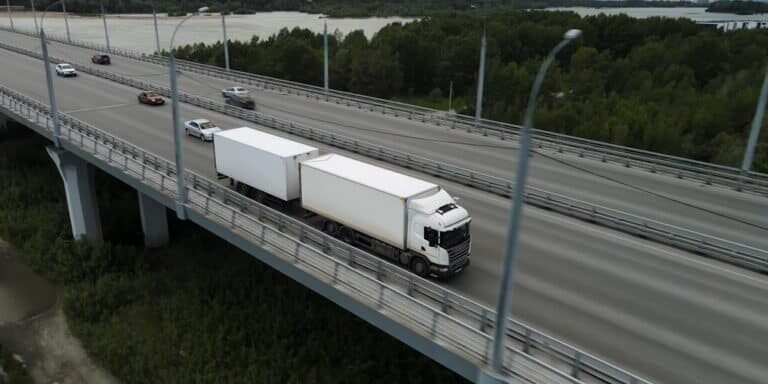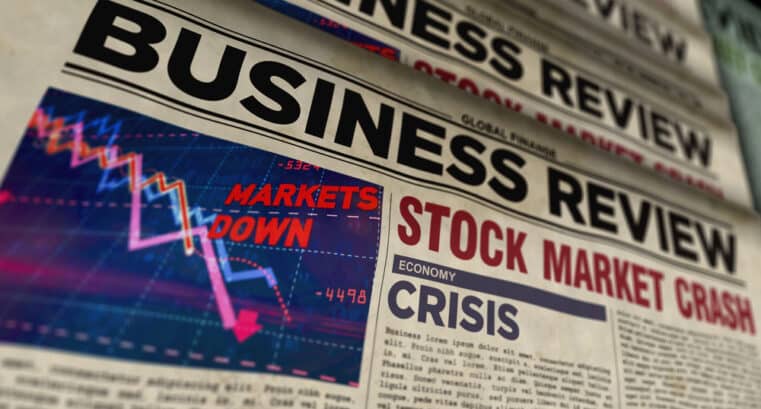
Trump’s Truck Tariff: A $31 Billion Signal That the Freight Economy Is Being Politicized—But Will You’ll Pay the Price?
1. Freight Costs Will Rise—And That Means Everything Else Will, Too
The trucking industry moves 73% of domestic freight. That’s not just boxes and pallets—it’s groceries, medical supplies, home appliances, construction materials, and fuel. When the cost of trucks goes up by 25%, so does the cost of operating them. For a sector already plagued by thin margins, this tariff forces companies to pass the cost downstream—straight to the consumer.
Don’t think of this as a trade war. Think of it as backdoor inflation—a stealth tax hitting every American with a pulse. We’re not just importing trucks—we're importing a new layer of price instability across every supply chain in America.
2. Domestic Manufacturers Can’t Fill the Gap—And That’s Intentional
Proponents argue this tariff will “protect American manufacturing.” But let’s get real: U.S. truck production isn’t remotely positioned to meet demand overnight. We’ve hollowed out domestic heavy industry for decades under both parties. Rebuilding those capabilities isn’t a matter of flipping a switch—it’s a decade-long endeavor at best.
In the meantime, what do we get? Delayed shipments. A used truck bubble. Mechanic shortages. And smaller freight companies closing shop. Once again, central planners push policy without any sense of the private market’s actual capabilities.
3. The Real Beneficiaries: Big Box Retailers and Defense Contractors
While small logistics firms and independent drivers will get crushed, giant corporations—those who already buy fleets in bulk and lobby Congress by the hour—will survive and consolidate more market share. Walmart, Amazon, FedEx—they’ll weather the storm. But the local trucking outfits moving produce to your farmers market? They’re the ones getting buried.
And let’s not forget the military-industrial complex. Every time you see “heavy-duty truck,” there’s also a defense angle lurking. Defense contractors like Oshkosh or General Dynamics stand to gain, as tariffs protect their procurement costs and block foreign competition. We’re watching another wealth transfer from entrepreneurs to federal cronies.
4. Canada, Mexico, Germany—The Blowback Will Be Real
According to U.S. trade data, our top truck import sources include Canada, Mexico, Germany, Japan, and Finland. Slapping tariffs on these partners risks retaliatory measures, disruptions in cross-border commerce, and a diplomatic firestorm—just as global trade becomes more unstable due to geopolitical realignments.
Germany is already flirting with a recession. Japan’s currency is in freefall. Mexico is rethinking U.S. energy policy cooperation. Are we really ready to provoke this hornet’s nest while U.S. GDP flatlines and consumer credit delinquencies hit 18-year highs?
5. Tariff Revenue Is a Mirage
The administration claims it collected over $31 billion in tariff revenue last month. That’s not a win. That’s $31 billion siphoned directly out of American businesses and households—paid to the federal government for the “privilege” of importing what we no longer make ourselves.
Worse yet, that money doesn’t retire debt, it doesn’t shrink the deficit, and it doesn’t go back to the people. It feeds the same bloated bureaucracy that weaponizes money laundering laws against small savers and audits working-class Americans instead of JPMorgan.
Tariffs in this context don’t “protect American industry.” They fund American authoritarianism.
6. The Supreme Court Angle—Trade Policy or Executive Overreach?
Let’s not gloss over the legal piece here: the Supreme Court is currently reviewing the legality of Trump’s broader trade authority. Regardless of the outcome, the fact that we’re in this position signals just how centralized and unaccountable our economic system has become. One man, one signature, and a trillion-dollar sector gets restructured overnight. That’s not capitalism. That’s planned chaos.
What You Should Do Now
Whether or not you support Trump politically, economically this is just another red flag. Our supply chains are fragile. Our monetary policy is broken. And our government is increasingly using trade and regulation as tools of political leverage—not economic stability.
Here’s what you can do to prepare:
- Diversify into tangible assets: If you’re still holding all your wealth in dollars, you’re walking a tightrope in a windstorm. Move into gold, silver, and vetted cryptocurrencies. Inflation is here to stay.
- Get out of big banks: Your deposits are not as safe as they claim. Learn how to protect your account from bail-ins and institutional failures.
- Download Bill Brocius’ free guide, ‘7 Steps to Protect Your Account from Bank Failure’, at this link:
👉 https://offers.dedollarizenews.com?utm_source=7steps_ebook&utm_medium=website&utm_campaign=Good_Solid_Info&utm_term=static&utm_content=Eric_Blair - Read Bill’s eye-opening book, ‘End of Banking As You Know It’, and understand how centralized finance is being weaponized against savers and workers.
- Subscribe to Bill’s Inner Circle newsletter for $19.95/month to get firsthand analysis from the man who saw this coming a decade ago.
👉 Join here and stay ahead of the next crisis.
https://offers.dedollarizenews.com
Final Thought
This isn’t just a policy move. It’s a preview of how economic nationalism, unchecked debt, and centralized power will collide—and you’re in the blast zone unless you act now.
Stay sharp. Stay sovereign.
— Eric Blair











